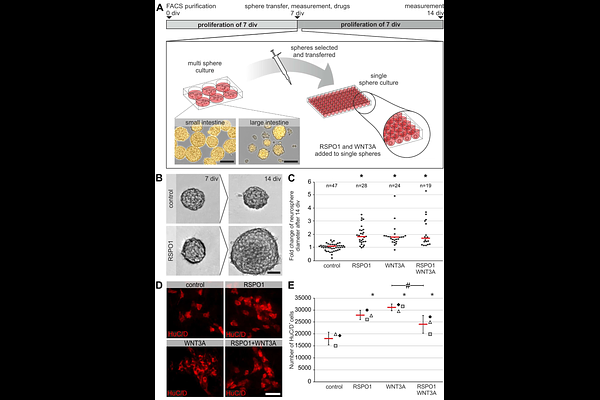R-Spondin1 regulates fate of enteric neural progenitors via differential LGR4/5/6-expression in mice and humans

R-Spondin1 regulates fate of enteric neural progenitors via differential LGR4/5/6-expression in mice and humans
Scharr, M.; Scherer, S.; Fuchs, J.; Hirt, B.; Neckel, P. H.
AbstractRegeneration and cytodifferentiation of various adult epithelial stem cell compartments are controlled by the Wnt-agonist R-Spondin1 (RSPO1) and the Leucin-rich-repeat-containing G-protein-coupled-receptors (LGR4/5/6). We hypothesized that RSPO1-LGR-signaling also is involved in regulating neuro-regeneration and homeostasis of the postnatal enteric nervous system (ENS). If applied to murine and human ENS-progenitors, RSPO1 led to an increased proliferation, followed by enhanced enteric neurogenesis. This coincided with an upregulation of LGR4 expression during ENS-progenitor proliferation in vitro. In contrast, we observed a reduced proliferation in ENS-progenitors expressing LGR5, while LGR6 was not expressed by proliferative ENS-progenitors. Instead, LGR5 and LGR6 expression increased over the course of induced neuronal differentiation, consistent with the in vivo expression. LGR-receptor expression therefore might represent a previously unknown mechanism influencing the fate decision of ENS-progenitor cells between proliferation and neuronal differentiation. Thus, our study is essential for our understanding of regenerative aspects of the postnatal ENS in health and disease.